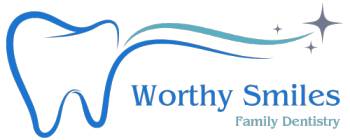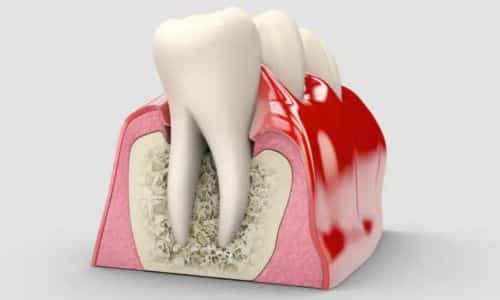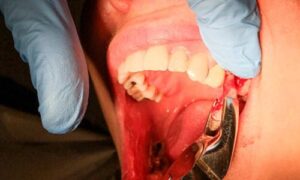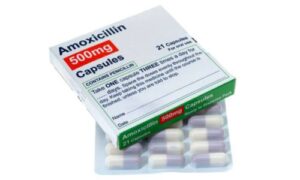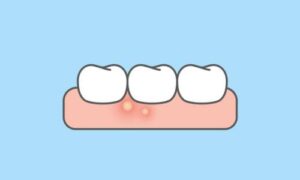Explore the critical connection between gum diseases and nutrition. Learn how dietary choices impact oral health and discover practical tips for preventing gum diseases through proper nutrition. Discover nutrition’s critical role in maintaining healthy gums and preventing gum diseases. Find out how certain nutrients, such as vitamin C and calcium, can strengthen your gums and protect against infections. Implementing a well-balanced diet and avoiding sugary foods can significantly improve oral health and reduce the risk of gum diseases.
Introduction
Good oral health is essential for our overall well-being. However, many people underestimate the significance of proper nutrition in maintaining healthy gums. In addition to regular brushing and flossing, a nutritious diet is crucial in preventing gum diseases. Nutrients like vitamin C help boost collagen production, which is vital for maintaining the integrity of gum tissues. Similarly, calcium helps strengthen the jawbone and teeth, providing a solid foundation for healthy gums. In this comprehensive guide, we’ll delve into the topic of the role of nutrition in preventing gum diseases. We’ll explore how dietary choices affect gum health and provide valuable insights to help you maintain a beautiful smile. Let’s get started!
Gum Diseases and Nutrition: A Holistic Approach
Diving into the heart of the matter, it’s crucial to understand the intricate relationship between gum diseases and nutrition. Research has shown that poor nutrition can weaken the immune system, making it harder for the body to fight infections and inflammation in the gums. Certain nutrients like vitamin C and calcium are crucial in maintaining healthy gum tissue and preventing gum diseases. Adopting a holistic approach to oral health that includes a balanced diet can significantly reduce your risk of developing gum diseases and maintain optimal gum health.
Understanding Gum Diseases
Before discussing nutrition’s impact, let’s first understand gum diseases. Gum or periodontal diseases encompass various conditions affecting the tissues supporting your teeth. These conditions can vary from mild gum inflammation (gingivitis) to severe infections leading to tooth loss (periodontitis). Gum diseases are primarily caused by plaque buildup, a sticky film of bacteria that forms on the teeth. Poor oral hygiene, smoking, certain medications, and genetic factors can also contribute to the development of gum diseases. It is important to note that gum diseases affect oral health and are linked to systemic conditions such as heart disease and diabetes.
The Role of Nutrition in Gum Health
Your diet plays a pivotal role in maintaining healthy gums. Proper nutrition can help prevent gum diseases and promote overall oral health. Here’s how it works:
1. Nutrients for Gum Health
Vitamin C:
Vitamin C is essential for gum health as it helps to maintain the collagen in your gums. Collagen is a connective tissue that supports and keeps your gums attached to your teeth. Strawberries, broccoli, Citrus fruits, and bell peppers are excellent sources of vitamin C. Including these foods in your diet can help ensure you get enough vitamin C to support healthy gums. Vitamin C also has antioxidant properties that can help reduce inflammation in the gums and prevent gum diseases.
Calcium:
Calcium is necessary for strong teeth and bones and supports gum health. Dairy products like yogurt, cheese, leafy greens, and almonds are rich in calcium. These calcium-rich foods can help strengthen your teeth and bones and promote healthy gums. Adequate calcium intake is essential for maintaining oral health and preventing tooth decay and gum disease.
Vitamin D:
Vitamin D helps your body absorb calcium, making it crucial for gum and tooth health. This can be obtained from sources such as fatty fish, fortified dairy products, and exposure to sunlight. In addition to promoting gum and tooth health, vitamin D reduces inflammation and supports the immune system. Ensuring you get enough vitamin D to maintain optimal oral health and prevent oral infections is essential.
Antioxidants:
Antioxidants, such as vitamin E and beta-carotene, can reduce inflammation in the gums. Foods like nuts, seeds, spinach, and sweet potatoes contain these beneficial nutrients. Including these foods in your diet can help promote healthy gums and prevent gum disease. Additionally, antioxidants can help protect against damage caused by free radicals, contributing to oral health issues.
Omega-3 Fatty Acids:
Omega-3 fatty acids have anti-inflammatory properties that can benefit gum health. Fatty fish like salmon and walnuts are excellent sources of omega-3 fatty acids. Including these foods in your diet can help reduce inflammation in the gums and improve oral health. Omega-3 fatty acids have also been linked to a lower risk of periodontal disease, a severe form of gum disease that can lead to tooth loss if left untreated.
2. Hydration Matters
Adequate water consumption helps maintain saliva production, your body’s natural defense against oral bacteria. Saliva helps wash away food particles and neutralize acids that can erode tooth enamel. Staying hydrated also prevents dry mouth, which can increase the risk of tooth decay and bad breath. Remember to drink water throughout the day to keep your mouth healthy and well-hydrated.
3. Balancing Act
A balanced diet ensures your body gets all the nutrients it needs for gum health. Avoid excessive sugar and processed foods, leading to plaque buildup and gum disease. Instead, incorporate plenty of fruits, vegetables, lean proteins, and whole grains into your diet. These foods provide essential vitamins and minerals supporting gum health and oral hygiene. Maintaining a balanced diet can also help prevent other oral health issues, such as tooth decay and bad breath.
Practical Tips for Gum Disease Prevention
Now that you understand the importance of nutrition in gum health let’s explore some practical tips to prevent gum diseases.
1. A Diet Rich in Fresh Fruits and Vegetables
Incorporate a variety of fresh fruits and vegetables into your diet. These are packed with essential vitamins and antioxidants that promote gum health. Some examples of fruits and vegetables that are particularly beneficial for gum health include leafy greens, citrus fruits, and berries. Additionally, chewing on crunchy fruits and vegetables can help stimulate saliva production, which can aid in washing away bacteria and food particles from the gums.
2. Limit Sugar Intake
Excessive sugar consumption can lead to the growth of harmful bacteria in your mouth. Be mindful of sugary snacks and drinks. Instead, opt for healthier alternatives like fresh fruits or unsweetened beverages. Consuming less sugar can help prevent plaque development and reduce the risk of gum disease. It is essential to maintain a balanced diet to support overall oral health.
3. Stay Hydrated
A well-hydrated mouth can wash away food particles and bacteria. Make water your beverage of choice. Drinking water throughout the day can also help stimulate saliva production, crucial in neutralizing acids and protecting your teeth. Additionally, avoiding sugary drinks like soda or juice can further reduce the risk of tooth decay and maintain a healthy oral environment.
4. Dairy Products for Calcium
Dairy products like milk and yogurt are excellent sources of calcium, which strengthens teeth and gums. Calcium is essential for maintaining strong tooth enamel, which helps protect against tooth decay. Including dairy products in your diet can also contribute to oral health by promoting healthy jawbone development.
5. Lean Proteins
Include lean proteins like poultry and fish in your diet. They provide essential nutrients for gum health. Lean proteins like poultry and fish are rich in omega-3 fatty acids, which have anti-inflammatory properties that can help reduce gum inflammation and prevent gum disease. Additionally, these proteins contain vitamin D, which is essential for calcium absorption and bone health in the jaw.
6. Whole Grains
Whole grains contain B vitamins that are beneficial for gum health. Opt for whole wheat bread and brown rice. These whole grains are also a good source of fiber, which can help promote healthy digestion and prevent constipation, a condition linked to gum disease. Including whole grains in your diet can contribute to overall gum health and reduce the risk of developing gum-related issues.
7. Avoid Tobacco
Smoking and tobacco use are major risk factors for gum disease. Quitting smoking can lead to a substantial improvement in your gum health (and overall health!). In addition to reducing gum inflammation and preventing gum disease, whole grains also provide fiber, promoting good digestion and oral health. It is important to note that avoiding Tobacco improves gum health and reduces the risk of developing oral cancer and other severe health conditions associated with smoking.
8. Regular Dental Checkups:
Visit your dental clinic regularly for checkups and cleanings. They can monitor your gum health and provide guidance on nutrition tailored to your specific needs. Regular dental checkups are essential for maintaining good oral health. In addition to monitoring gum health, dentists can detect any early signs of gum disease and provide necessary treatments. Furthermore, they can offer personalized nutrition and oral hygiene advice to ensure optimal oral health.
FAQs
Q: Can gum diseases be prevented entirely with nutrition alone?
A: While nutrition is vital in preventing gum diseases, maintaining good oral hygiene practices like regular brushing and flossing is equally important. It is important to note that a balanced diet and proper nutrition can significantly reduce the risk of gum diseases, but it cannot guarantee complete prevention. Regular dental checkups and professional cleanings are necessary to maintain optimal gum health.
Q: How can I ensure a balanced diet for gum health?
A: Consume various foods from different groups and limit processed and sugary items. A balanced diet for gum health should include plenty of fruits and vegetables, lean proteins, and healthy fats. Staying hydrated by drinking plenty of water can also contribute to gum health.
Q: Are there specific foods that can worsen gum diseases?
A: Food high in sugar and refined carbohydrates can contribute to gum disease if consumed excessively. Additionally, acidic foods and beverages can erode tooth enamel and increase the risk of gum disease. Maintaining a balanced diet and limiting the consumption of these harmful foods is essential for optimal gum health.
Q: Can vitamin supplements help in preventing gum diseases?
A: Vitamin supplements can be beneficial, but getting essential nutrients from a balanced diet is best. Taking vitamin supplements can help fill in any nutritional gaps, but they should not replace a healthy diet. It’s essential to consult with a healthcare professional before starting any new supplements.
Q: Are there any home remedies for gum disease prevention?
A: Some natural remedies, like oil pulling and saltwater rinses, can complement good nutrition in preventing gum diseases. However, it’s important to note that these remedies should not replace regular dental care and professional treatment. It’s always best to consult a dentist for personalized advice on gum disease prevention.
Q: How often should I visit a dentist for gum disease checkups?
A: Regular dental checkups, typically every six months, are essential for early detection and prevention of gum diseases. Regular dental checkups, typically every six months, are critical for early detection and prevention of gum diseases. Additionally, practicing good oral hygiene at home, such as brushing twice daily and flossing daily, can help maintain healthy gums.
Conclusion
In conclusion, the role of nutrition in preventing gum diseases cannot be overstated. By making informed dietary choices and adopting a holistic approach to oral health, you can significantly reduce the risk of gum diseases. This includes avoiding sugary and acidic foods and beverages, as they can contribute to the development of gum diseases. Furthermore, incorporating foods rich in vitamins and minerals, such as fruits and vegetables, can help strengthen your gums and promote oral health. Remember to maintain good oral hygiene and consult your dentist for regular checkups. Your beautiful smile is worth it!
